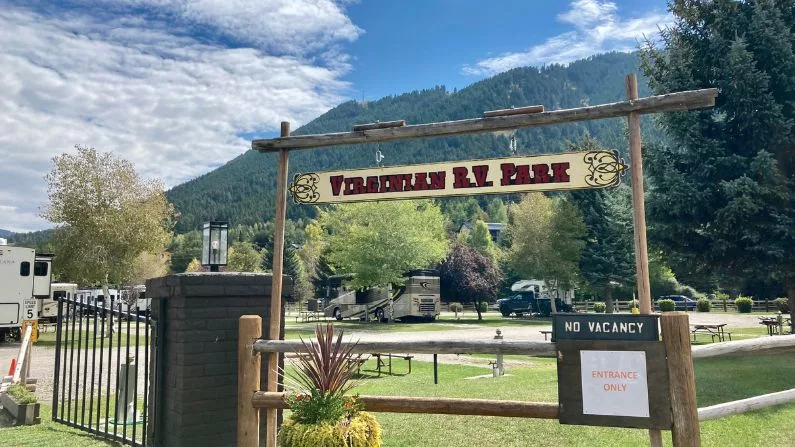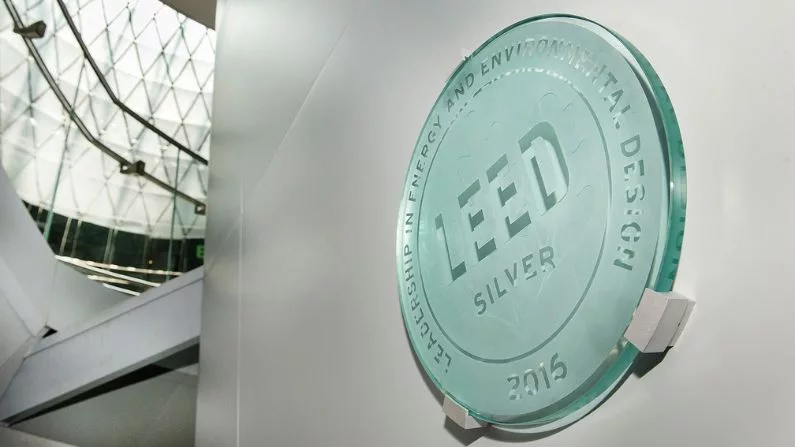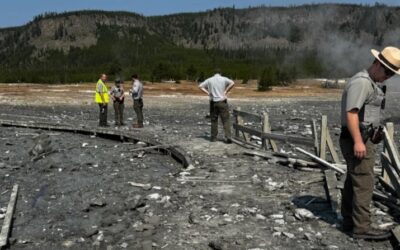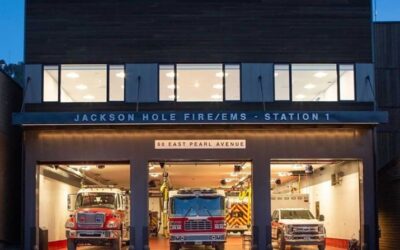Teton County and Jackson leaders are moving forward with plans to build at least 150 affordable units near downtown at what’s currently the Virginian RV Park.
There’s a lot riding on those plans. It’s one of the biggest affordable housing developments in the county — second only to Northern South Park.
And some community members want the project to be an example of sustainable development.
That includes Margie Lynch, who leads the Jackson Hole Climate Action Collective.
“There’s a really important opportunity for our community to establish its leadership in achieving climate and sustainability goals,” Lynch said at a Monday meeting, urging leaders to be more aggressive with incentivizing eco-friendly building.
She continued, “A project like this is going to be in place for decades and we need to prepare and plan for the future.”
That meeting marked the third official discussion about the project among elected officials, since the town and county bought the RV Park for $28 million this summer. Until now, conversations have centered around items such as parking and the potential for commercial space in the development.
The latest meeting is the first time where discussions of sustainability dominated.
“[Sustainability] shouldn’t come to the table as an afterthought,” Lynch told KHOL after the meeting. “It should be a consideration at the beginning of every project we undertake.”
LEED building requirements
Local leaders are still deciding what they’re going to require of developers for the Virginian housing project. On Monday, they decided applicants must meet Leadership in Energy and Environmental Design (LEED) requirements – a popular standard for sustainable building practices — or something comparable.
“I don’t like the idea of just settling for whatever the building code is,” Town Council Member Jonathan Schechter said in the meeting. “I would like to think that we are being more aspirational.”

The $28 million dollar purchase of the Virginian RV Park for new housing comes in part thanks to SPET dollars, approved by voters in the November 2022 election. (Hanna Merzbach/KHOL)
But the elected officials are trying to balance those high aspirations with giving developers enough flexibility. Becoming LEED-certified can be costly, so they just want developers to meet those requirements — or similar ones — instead of actually getting certified.
This was a shift from what officials said in past meetings. They previously told Housing Director April Norton that developers shouldn’t need to meet any sustainability requirements.
“In three meetings, we’ve gotten three different directions on this,” Norton said at the most recent meeting, speaking to the challenge of getting ten elected officials on the same page.
Community members want more
Lynch said requiring some sustainable building practices is a step in the right direction, but it’s not enough. She wants to see requirements like solar panels and cooling systems — to prepare for a warming climate.
“I think there’s farther to go to make it a sustainable affordable housing project as opposed to an affordable housing project with a few sustainability measures,” she told KHOL.
Another community member, Laura Bonich, who works in environmental engineering and sits on the local housing supply board, said she would like to see the development rely entirely on electricity, instead of natural gas.
“We all know that there’s a lot of federal funding coming,” she said, encouraging officials to take advantage of Department of Energy funding.
Later in the meeting, leaders such as Mayor Hailey Morton Levinson expressed interest in accessing these funds, but Norton said the housing department doesn’t have time to take this on.
“I quite frankly don’t have the bandwidth to know all of the answers to all of the potential funding sources,” she said.
Norton said she welcomes help accessing these kinds of funds.
What’s next
Other conversations revolved around commercial space in the housing project. The majority of officials agreed that developers can propose using up to 15,000 square feet of the space to meet local conveniences. According to Norton, this could mean barber shops or corner stores.
Ultimately, the ten elected leaders decided to delay the process of seeking applications from developers, saying they felt rushed. They didn’t have time, for instance, to discuss how applicants will be scored and what will be most prioritized.
Unless they schedule a special meeting in late October, they’ll meet again on Nov. 6 to solidify their vision, before opening the floodgates to developers.
The project is slated to break ground in the summer of 2025.





